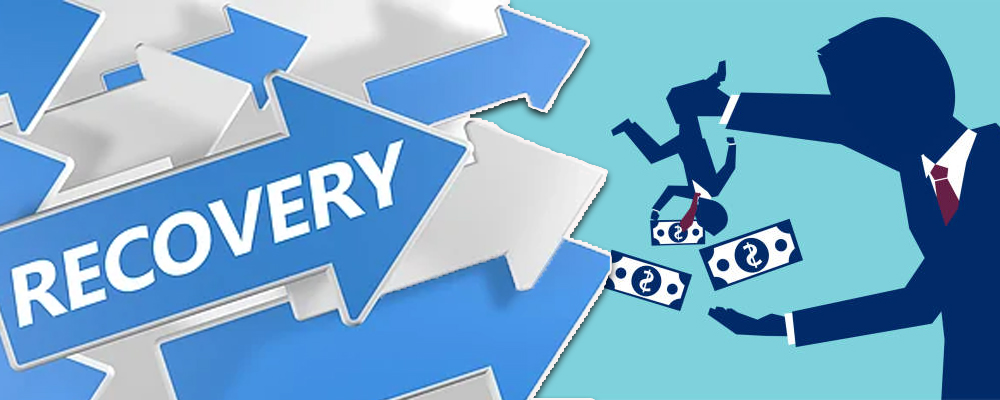Table of Contents
Debt recovery, the process of retrieving owed money or assets from debtors, plays a crucial role in maintaining a healthy financial ecosystem. In Vietnam, recent regulations have introduced significant changes to this landscape, impacting both creditors and debtors. This revised guide, provided by NT International Law Firm, aims to demystify these changes and empower you to understand your rights and obligations in the new debt recovery environment.

Debt Recovery in Vietnam: A Comprehensive 2023 Guide
Defining Debt Recovery:
Debt recovery encompasses a range of activities aimed at securing payment of outstanding debts, whether arising from contracts, loans, or legal judgments. It involves various methods, including negotiation, mediation, legal action, and asset seizure, all conducted within the legal framework established by Vietnamese laws and regulations.
New Regulations: Key Changes:
Circular No. 07/2022/TT-BTC, effective April 1, 2022, introduces several significant changes to debt recovery practices:
- Expanded scope: The circular now applies not only to state-owned enterprises undergoing ownership conversion but also to public service units undergoing equitization and enterprises/organizations with debts designated by the government or Prime Minister.
- Clarified owner representation: The circular defines the agencies responsible for representing the state owner of enterprises and public service units in debt recovery matters.
- Debt classification: The terminology shifts from “debtors” to “debt and excluded assets,” emphasizing the focus on the assets involved rather than the individuals owing the debt.
- Debt handling fees: The Vietnam Debt Trading Company (VDTC) can now receive fees for handling and recovering designated assets, covering the full cost of operations plus a portion of management costs.
- Payment deadlines: Enterprises and public service units must remit collected debt recovery proceeds to the VDTC within 5 working days.
- Late payment penalties: Failure to meet payment deadlines or submit reports on time incurs additional interest charges.
- Bankruptcy and liquidation: For businesses with debt that have gone bankrupt or dissolved, the VDTC monitors debt recovery proceeds off-balance sheet.

Implications for Creditors
Implications for Creditors:
The new regulations provide creditors with several benefits:
- Enhanced clarity and transparency: The revised framework offers a clearer understanding of the process and responsibilities involved in debt recovery.
- Streamlined procedures: The designated agencies for representing state owners simplify communication and collaboration.
- Improved efficiency: The VDTC’s role in handling specific debts can expedite the recovery process.
However, creditors must also be aware of their obligations:
- Adherence to legal requirements: All debt recovery activities must comply with Vietnamese laws and regulations.
- Accurate reporting: Timely and accurate reporting of recovered debt is mandatory.
- Timely payment: Prompt remittance of recovered debt proceeds to the VDTC is essential.
Implications for Debtors:
Debtors facing debt recovery actions need to understand their rights and responsibilities:
- Right to negotiate: Debtors have the right to negotiate repayment terms with creditors.
- Legal recourse: Debtors can seek legal assistance or challenge unfair practices.
- Compliance with reporting requirements: Cooperation with authorities and timely reporting are crucial.
- Consequences of non-compliance: Failure to meet obligations may lead to further legal action or asset seizure.

Seeking Legal Guidance
Seeking Legal Guidance:
Navigating the complexities of debt recovery under the new regulations can be challenging. NT International Law Firm recommends seeking professional legal advice to:
- Understand your specific rights and obligations.
- Develop an effective strategy for debt recovery or dealing with debt collection actions.
- Ensure compliance with legal requirements and avoid potential pitfalls.
- Protect your interests throughout the debt recovery process.
Conclusion:
The new debt recovery regulations in Vietnam bring about both opportunities and challenges for creditors and debtors alike. Understanding these changes and their implications is essential for effective debt management and ensuring fair resolution of debt disputes. NT International Law Firm remains committed to providing expert legal guidance and support to navigate this complex landscape. Remember, knowledge, planning, and professional assistance are key to protecting your interests and achieving a successful outcome in any debt recovery situation.
NT International Law Firm is Here to Help
NT International Law Firm has addressed the question of what debt recovery is and the new regulations surrounding it. If you have any further questions or concerns regarding debt recovery law, please contact our law firm immediately for expert legal advice.
If you require any legal assistance, please feel free to reach out to us via phone at 090 252 4567 or through email: info@ntpartnerlawfirm.com. At NT INTERNATIONAL LAW FIRM, our team is committed to offering you prompt and personalized advice.
You also might be interested in:
“The article’s content refers to the regulations that were applicable at the time of its creation and is intended solely for reference purposes. To obtain accurate information, it is advisable to seek the guidance of a consulting lawyer.”

LEGAL CONSULTING SERVICES
090.252.4567NT INTERNATIONAL LAW FIRM
- Email: info@ntpartnerlawfirm.com – luatsu.toannguyen@gmail.com
- Phone: 090 252 4567
- Address: B23 Nam Long Residential Area, Phu Thuan Ward, District 7, Ho Chi Minh City, Vietnam
